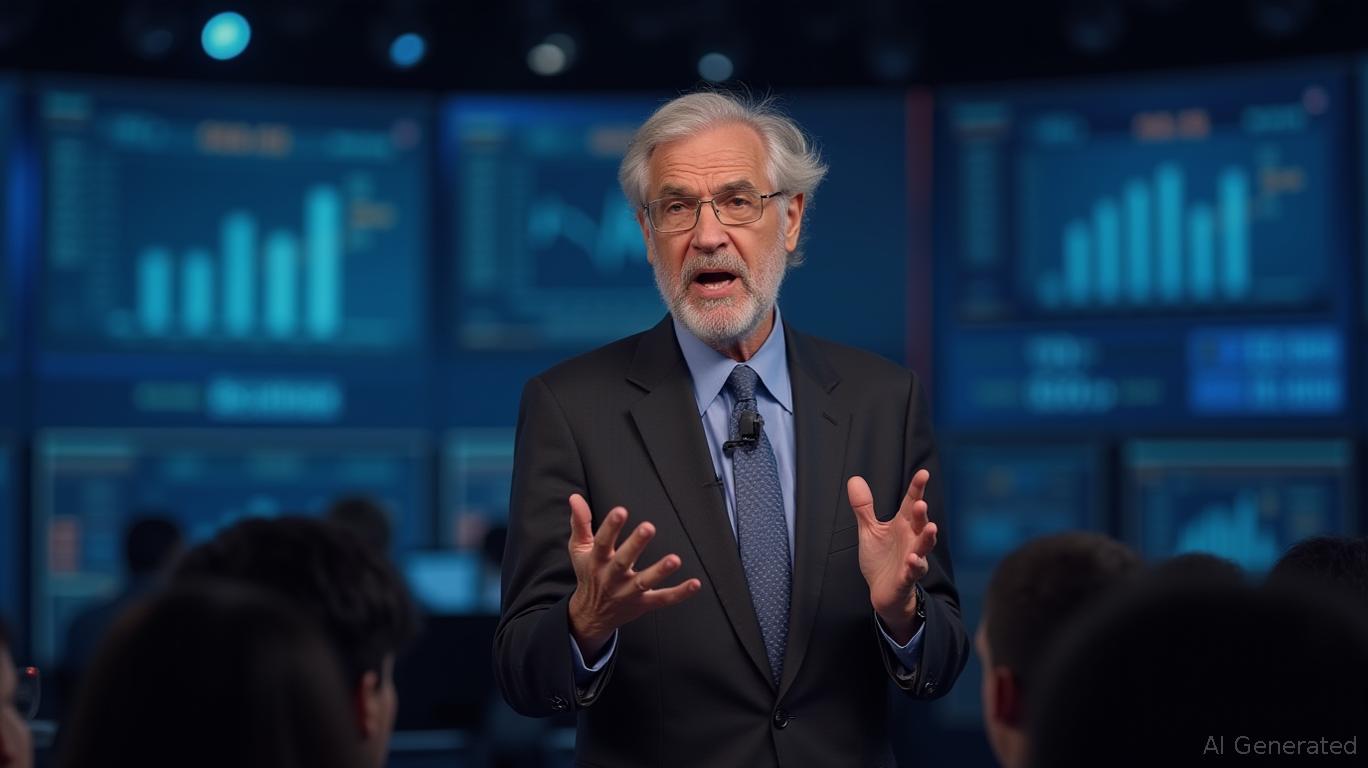U.S. and China Aim for Agreement on Rare Earths and Tariffs to Prevent Trade Conflict
- U.S.-China officials finalize trade deal in Malaysia to ease rare earth disputes and agricultural tariffs ahead of Trump-Xi summit. - Talks extend 90-day tariff truce, address China's rare earth controls and U.S. 100% tariff threats while reviving 2020 trade pact compliance. - Preliminary agreements on truce extensions and fentanyl controls aim to stabilize $200B/year agricultural markets and tech supply chains. - Analysts warn inconsistent U.S. policies risk eroding trust, despite potential billions in
Officials from the United States and China are preparing to conclude a significant

The rare earth dispute has become a central issue in the ongoing trade conflict, with China’s new export limitations prompting Trump to warn of 100% tariffs on Chinese imports starting November 1. These minerals, vital for technology and defense sectors, have served as a strategic asset for Beijing, while the U.S. aims to strengthen its supply chains. During the talks, U.S. Trade Representative Jamieson Greer stressed the importance of achieving "fair trade," while Chinese representatives maintained,
Disputes over agricultural trade are also a major focus. In September 2025, U.S. soybean shipments to China dropped to zero for the first time since 2018, a result of tariffs and China’s increased purchases from South America. Trump has used the issue as leverage, urging China to restart imports to benefit American farmers. The current negotiations seek to revive a $200 billion annual trade deal from 2020, which China has not fully met, having purchased only 58% of the agreed U.S. goods; the U.S. has launched an
Early agreement has been reached to prolong the existing 90-day pause on tariffs, which is due to end November 10, and to postpone China’s rare earth export restrictions. Treasury Secretary Bessent described a "highly significant framework"
The potential agreement could bring stability to global markets, especially in the agricultural and technology fields. Experts suggest that a soybean agreement could bring billions to U.S. agriculture and help steady food costs. Nonetheless, doubts remain, with analysts such as Wang Wen from Renmin University cautioning that unpredictable U.S. actions undermine trust. "Such tactics weaken the basis for any enduring deal," he remarked.
The negotiations come just before Trump’s APEC summit with Xi, where topics like Taiwan, Hong Kong, and the Russia-Ukraine war may also be discussed. While both parties are expressing hope, the fragile truce depends on concrete results. As a manufacturer from Zhejiang commented, "A healthy China-U.S. partnership is essential for shared prosperity".
Disclaimer: The content of this article solely reflects the author's opinion and does not represent the platform in any capacity. This article is not intended to serve as a reference for making investment decisions.
You may also like
Dogecoin News Update: Layer Brett's DeFi Advantage Draws Investors While Dogecoin Faces Setback
- REX-Osprey DOGE ETF, the first U.S. spot ETF for Dogecoin (DOGEUSD), launched on September 18, 2025, attracting institutional investors. - Dogecoin faces $0.20–$0.21 resistance after a 16% monthly decline, pushing investors toward Layer Brett (LBRETT) as an alternative. - Layer Brett, an Ethereum-based meme-DeFi hybrid, offers staking rewards, low fees, and 600% annualized returns, drawing crypto enthusiasts. - With $4.4M in funding and 10B tokens, Layer Brett combines utility and community incentives, p

Krugman Cautions That AI-Fueled Expansion May Widen Inequality and Deepen Economic Disparities
- Nobel laureate Paul Krugman warns the U.S. economy faces "abnormal" challenges, including AI-driven inequality, stagnant employment, and deepening polarization. - He highlights three key issues: sectoral divides from AI growth, an "employment freeze" with limited job access, and K-shaped growth favoring high-income groups. - Krugman criticizes delayed data releases and urges policy reforms to address systemic imbalances, as global trade tensions and Trump-era tariffs complicate economic stability. - His

BNB News Update: As BNB Levels Out and AVAX Declines, Crypto Investors Turn Their Attention to MoonBull
- BNB stabilizes above $1,100 amid Kyrgyzstan's BNB-backed stablecoin/CBDC partnership with Binance's CZ, while MoonBull ($MOBU) emerges as a high-ROI altcoin focus. - MoonBull's presale model offers 9,256% projected ROI through 23 price stages, 95% APY staking, and deflationary mechanics (liquidity, reflections, burns) to drive scarcity. - T. Rowe Price's $1.51T asset manager's crypto ETF filing signals institutional adoption, contrasting with AVAX's 14.85% monthly decline and bearish indicators. - $MOBU'

Bitcoin News Update: Bitcoin's Reputation as 'Digital Gold' Sparks Shift from Ethereum ETFs
- Ethereum ETFs saw $18.77M outflows in late October as investors shifted to Bitcoin, deepening crypto market divergence. - Bitcoin ETFs gained $73.63M in inflows via BlackRock's IBIT, maintaining $146.27B in net assets vs. Ethereum's $25.81B. - Bitcoin's price stabilized at $108,630 while Ethereum fell 0.89% to $3,832, reflecting institutional preference for Bitcoin's stability. - Fidelity's FBTC and Bitwise's BITB attracted $75.33M in October inflows, reinforcing Bitcoin's ETF leadership over Ethereum.
